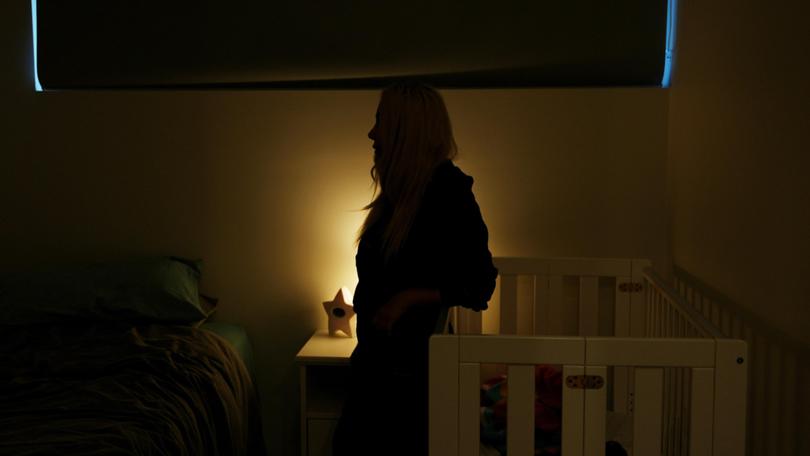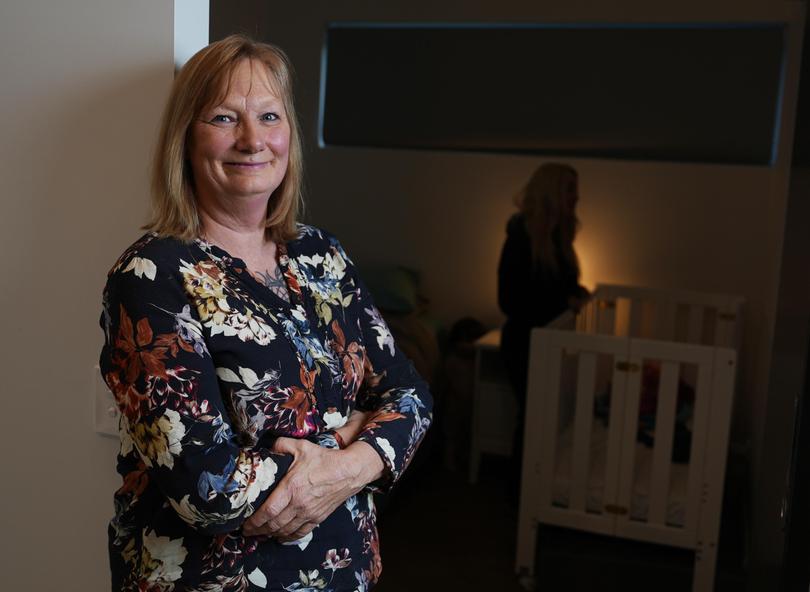Domestic violence crisis: Why there’s hope behind the harrowing rise in DV numbers in Australia
Karen Devins has been on the domestic violence front line for more than two decades. Here’s why this year’s surge in gendered violence is actually giving her hope.

After more than 20 years on the domestic violence front line, women’s shelter manager Karen Devins knows better than anyone that most people don’t want to hear about the issue that occupies her days and nights.
But something has changed with this year’s shocking surge in gendered violence against women, and it’s led Devins and others to believe the previously unthinkable: Maybe, this time it’s different.
“Most people don’t want to hear about domestic violence, because it’s not something they think is going to happen to them,” Ms Devins said.
Sign up to The Nightly's newsletters.
Get the first look at the digital newspaper, curated daily stories and breaking headlines delivered to your inbox.
By continuing you agree to our Terms and Privacy Policy.“But with all of this attention we are definitely seeing more women have the courage to step out and make themselves safe.
“It does give me hope.”
Policymakers and ordinary Australians alike have turned a laser focus on the issue of domestic violence in the wake of at least 28 murders of women across the nation this year, a figure tallied by online advocacy group Counting Dead Women Australia.
Domestic violence support is expected to be a key component in tomorrow’s Federal budget and states and territories are in a race to prove to a disheartened electorate they are stepping up to do more on measures such bail reform for offenders.
But for those on the front lines, the attention has brought a series of welcome developments they say they have never seen before. Not just an uptick in funding and resources - which all agree they need far more of - but in a seismic shift in community attitudes and awareness.
At St Vincent’s Hospital in Sydney, one of Australia’s biggest trauma centres, there was a twenty per cent increase in domestic violence presentations April, with 55 compared to 37 in 2023.
May is tracking similarly, according to senior social worker Bre Reiher.
But rather than this stark figure stirring panic for clinicians, emergency medicine specialist Dr Nikki Woods says it’s not all bad news.
“The reason for the increases we are seeing is varied,” she says.
“We might be seeing more of it, because we’re all switched on to think about it more. And I think finally, after all these years, the news stories every single week about women being killed brings it to the forefront of people’s mind.
“And as clinicians, we’ve done so much education on this topic and we’ve been empowered and taught how to approach patients to ask them about their relationships and domestic violence at home.
“We are now not shy, and we don’t feel like it’s too much to ask people about their safety at home.”
Dr Woods said the importance of screening for domestic violence victims through hospital was vital.
“All of the evidence suggests that when you look back at victims of domestic violence homicide, they’ve usually got in their history some form of seeking medical attention, and while might not have disclosed it as domestic violence, a lot of them have had some interaction with a health professional before they’ve been murdered,” she said.
“So it doesn’t take much to kind of put two and two together and say, ‘wouldn’t it be great if we can actually identify these people earlier and offer them support’, because a lot of them feel helpless, and very vulnerable.
“And they’re not the classic patients that you think about. It’s literally anybody and potentially everybody that’s at risk of intimate partner or domestic violence.
“And we’re not just asking about intimate partner violence, we’re asking about any sorts of violence or threats or anything at home. And we always end our screening with the question: ‘do you feel safe going home?’.”
Former finance worker Isla*, well understands the sense of desperation and isolation that comes with intimate partner abuse.
The 42-year-old has been a resident at Ms Devin’s western Sydney shelter since she made the difficult decision to leave her abusive husband in January, a move she said she couldn’t have imagined taking until someone at her church intervened to offer her support.
An Iranian immigrant with a precarious visa attached to her former partner’s, Isla’s story is typical of the women and children at the St Vincent’s Open Support Safe Haven, which is one of two Sydney outposts of the refuge.
It was the birth of her daughter Mia* sixteen-months ago that gave Isla the impetus she needed to leave her situation after being trapped in an abusive relationship for the past five years.
“My husband treated me very badly,” she tells The Nightly.
“He didn’t physically hit me, but there was a lot of control. I had no money and there was emotional and sexual abuse.
“I thought that I didn’t have any options because that is what he had told me for so long and I thought that I had to stay living in that situation.”

It was only when someone at her church intervened and helped link her with Ms Devins’ shelter that she felt safe.
“I didn’t have anything when I left him. I left everything I had behind,” she says.
“I never thought that I would be in this situation where I had nowhere to go and they have looked after me and they have saved me,” she said of the shelter.
“That is why I wanted to talk about this, so that other people know that even when you think there is no hope, there are people who will help you.”
Ms Devins said Isla’s story was similar to that of many women her service helps.
“We try to find the most vulnerable people that there are and fill the gaps in the funded services, because we do not have any government funding,” she said.
This makes her role a mix of helping women and children and linking them with supports such as therapists, applying for grants and scrounging for items ranging from the office printer she won in a raffle that needs replacing to new household belongings for the residents.
“When they come here many of the women have nothing at all, and so we give them new linen and towels, things that make it seem more like a home for them,” she said.
“We don’t want to give them old things because why should they have to use second-hand things?”
Ideally when they leave her shelter, Ms Devins helps them move into a safe home with some kind of work.
“They’ll stay for about three months at either one of our refuges, where we’ll work on case management, getting them income, helping them with immigration.. we help them with whatever comes up,” she says.
“So once they then leave us, they will go from us to private rentals into their own names. And then we will continue to work with them for another 18 months to two years.
“We have more of recovery model than just crisis accommodation, because we want to make sure that we have a target of zero women returning to perpetrators.
“Last year, we had one and so far this year, we’ve had one. So the stats are very good but they are not perfect.”
Making a safe escape from a violent partner is one of the hardest things for women, particularly mothers, who find themselves being victimised, and anger at this situation last month inspired a series of mass rallies across the country.
Another smaller walk was held over the weekend in NSW central west town of Forbes, where grief over the murder of young mum Molly Ticehurst, allegedly by a former partner who stalked her, has galvanised Australians.
Molly’s uncle Fred Brown was among hundreds who gathered and he spoke of the family’s hope that there would be effective changes borne from the tragedy.
In the wake of Molly’s murder, NSW Premier Chris Minns is set to push a series of reforms through Parliament this week that would deny domestic abusers bail while they await trial after having earlier announced a $230 million package to enhance support for victims.
“It’s hard but, you know, it’s good to see that things are going to change out of this, which is one of the best things,” Mr Brown said in Forbes on Sunday.
1800RESPECT
1800 737 732

